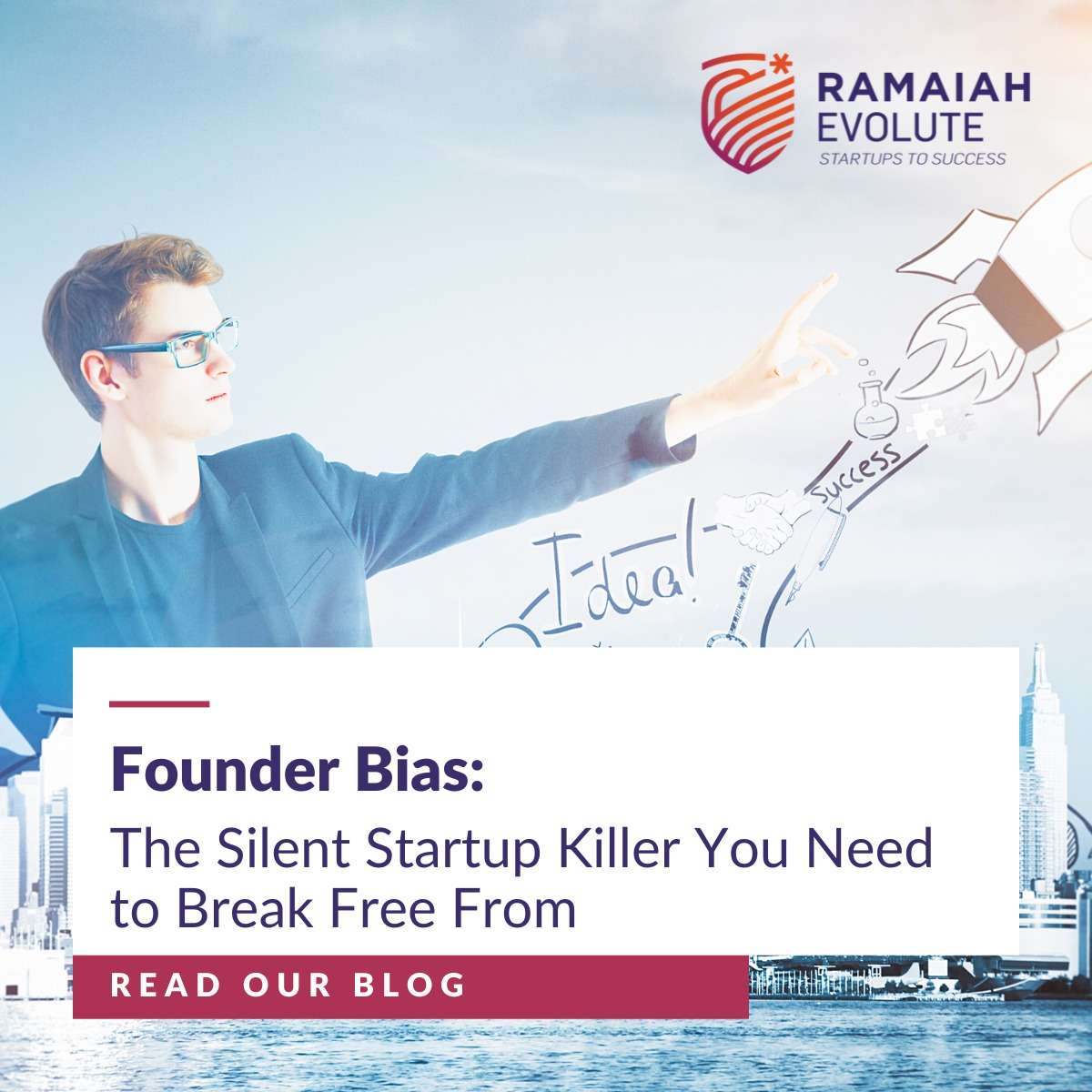Founder Bias

Founder bias refers to the inherent cognitive and emotional biases that founders may exhibit in their decision-making processes, which can have detrimental effects on the success of a startup. It stems from the deep-rooted attachment and personal investment founders have in their own ideas, leading them to develop a bias towards their own beliefs, assumptions, and preferences. While passion and conviction are important for entrepreneurs, unchecked founder bias can blind them to potential flaws, hinder innovation, and impede growth.
Founder bias can kill a startup in several ways:
- Narrow Vision : Founder bias often limits the founder’s ability to consider alternative perspectives or explore new opportunities. They become overly focused on their initial idea, disregarding feedback or market demands that may require adaptation or pivoting. This tunnel vision prevents the exploration of potentially better strategies or business models.
- Resistance to Feedback : Founders influenced by bias may be reluctant to accept feedback, especially if it challenges their original vision. They may dismiss criticism or ignore market signals, leading to missed opportunities for improvement and innovation. This can result in a product or service that fails to meet customer needs or expectations.
- Limited Innovation : Founder bias can stifle innovation by discouraging the exploration of new ideas or approaches. Founders may be overly attached to their initial solution, preventing them from considering alternative or disruptive innovations that could better address market needs. This lack of openness to innovation can make a startup stagnant and vulnerable to competition.
- Inefficient Resource Allocation : Founder bias can lead to poor resource allocation decisions. The focus on the founder’s preferred ideas or strategies may lead to excessive investment in areas that are not delivering results or neglect of areas with higher potential. This misallocation of resources can drain finances and hinder overall progress.
- Team Dynamics and Culture : Founder bias can also impact team dynamics and company culture. When founders prioritize their own ideas without considering input from team members, it can create a hierarchical and stifling work environment. This can lead to a lack of trust, diminished creativity, and demotivated employees, ultimately hindering the startup’s growth.
To break founder bias and increase the chances of startup success, founders should:
- Seek Diverse Perspectives : Actively seek feedback and perspectives from team members, advisors, mentors, and customers. Embrace diversity in backgrounds, experiences, and viewpoints to challenge assumptions and identify blind spots.
- Validate Assumptions : Test and validate assumptions underlying the startup’s business model and value proposition. Use market research, customer interviews, and data analysis to gain objective insights and adjust strategies accordingly.
- Embrace a Learning Mindset : Cultivate a mindset of continuous learning and improvement. Be open to constructive criticism, acknowledge mistakes, and be willing to adapt and pivot when necessary.
- Encourage a Culture of Feedback : Foster a culture where team members are encouraged to share ideas, challenge assumptions, and provide honest feedback. Create a safe space for open dialogue and collaboration.
- Stay Customer-Centric : Keep the focus on understanding and serving customer needs. Regularly engage with customers, listen to their feedback, and use it to drive product or service enhancements.
- Leverage Data and Metrics : Rely on data-driven decision-making rather than personal biases. Establish clear metrics and key performance indicators (KPIs) to measure progress and guide strategic decisions.
- Build a Diverse Team : Surround yourself with a diverse team that brings different perspectives, skills, and experiences to the table. Foster an inclusive environment where ideas are valued, and collaboration is encouraged.
By recognizing and actively addressing founder bias, entrepreneurs can create a more resilient and adaptable startup that is better positioned for success in a dynamic and competitive business landscape.
SHARE

